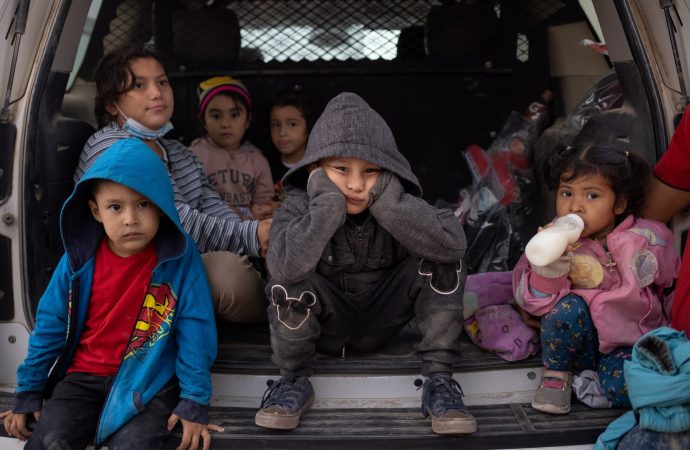

Bishop Daniel Flores of Brownsville, however, does use the word “crisis” when he analyzes the situation. Especially when he considers the humanitarian perspective.
“I don’t call the capacity of the (Rio Grande Valley) to handle it a crisis,” Bishop Flores said.
“It’s a crisis in another sense though because these are all families that have been living through extremely stressful situations. Most all of them, especially the young people, are escaping situations and circumstances in their home country that we in this country find very difficult to imagine.”
The Diocese of Brownsville covers four counties in southwest Texas — essentially the Rio Grande Valley — which is the most popular place for attempted border crossings. The population of the diocese as of the end of 2020 was 1,377,861 — 1,171,182 of which are Catholics, according to the diocese.
Therefore, a Catholic approach has been at the heart of the diocese’s response. It focuses on the people before the government policies or someone’s immigration status.
“Through the Obama administration, through the Trump administration, now through the Biden administration, the church’s first responsibility has been to respond to who’s at our door in terms of, ‘Are you hungry, are you thirsty, do you have some need we can assist you with?’ ” Bishop Flores said.
“It’s not the church’s business to ask people what their immigration status is. We respect the government and it needs to do what it needs to do, but we’re primarily concerned with the families and helping them,” the bishop continued. Bishop Flores further noted that it “requires a lot of cooperation” with local, state, and federal officials to provide the humanitarian aid that’s needed.
Last week, the government granted Bishop Flores and Sister Norma Pimentel, executive director of Catholic Charities of the Rio Grande Valley, access to visit its new facility for unaccompanied minors in Donna.
“We had a chance to see how they’re trying to attend to what is a crisis to these young people because they are unaccompanied and they’re still minors,” he said.
Despite images and reports of overcrowding in border facilities holding children, Bishop Flores and Sister Norma said this facility — which has existed for about three weeks — is a positive step towards appropriately taking care of unaccompanied minors.
They each described the facility as large and spacious, and the conditions as “very good.”
Although, Sister Norma acknowledged that it’s approaching its 1,500-person capacity limit.
Specifically, they said, the children are tested for COVID-19 when they get to the facility and are isolated if they test positive. Once there’s a negative test result, the children are then broken up into groups of 50 based on when they arrived.
From there, Sister Norma said, there’s “good food, good clothing and opportunity to play while their caseworkers work to connect them with their families.”
“We talked to all the children and they replied and we said do they treat you well and they all said, ‘yes.’ Do you like the food? ‘Yes.’ Do you want to go home? ‘Yes!’ even louder, so that shows no matter how nice they treat you and everything what they ultimately want is to be reunited with their family,” Sister Norma said. “That was one thing I stressed to them and they said that’s the number one priority for us.”
When Bishop Flores speaks with government officials, he said he insists that tending to a young person is more than “just making sure they have food and a roof,” but also tending to “their sense of life and their sense of hope and their sense of purpose and their sense that things can get better.”
The bishop also encourages the children to support one another.
“I do encourage the kids wherever I go that they need to be good to each other and encourage one another and be just a certain sense of solidarity,” Bishop Flores said. “We need to appeal to that with very young people. That life is a journey and a lot of how well it turns out is how well you look after the people who were on the trip with you and that’s life.”
In general, Bishop Flores believes that the first step to addressing the situation at the U.S.-Mexico border is addressing the “crisis” in Central America that forces people to leave. And the “crisis” that is then the dangerous travel through Mexico.
Additionally, he said, the church needs to continue to prioritize the underserved communities in the diocese, where some families end up when they arrive because he considers the church’s first responsibility to “find ways to address the person in front of us.”
Sister Norma said she wants people to recognize that migrants are no less important than anyone else.
“We also have the responsibility to never lose sight of the fact that they’re human beings and they’re people and they’re mothers and children and we have a responsibility to care for them properly,” she said. “And so, whether it is in detention, whether it is in a humanitarian response like ours, or when we see them in our community we have a responsibility to one another just because we’re a part of the human race.”
